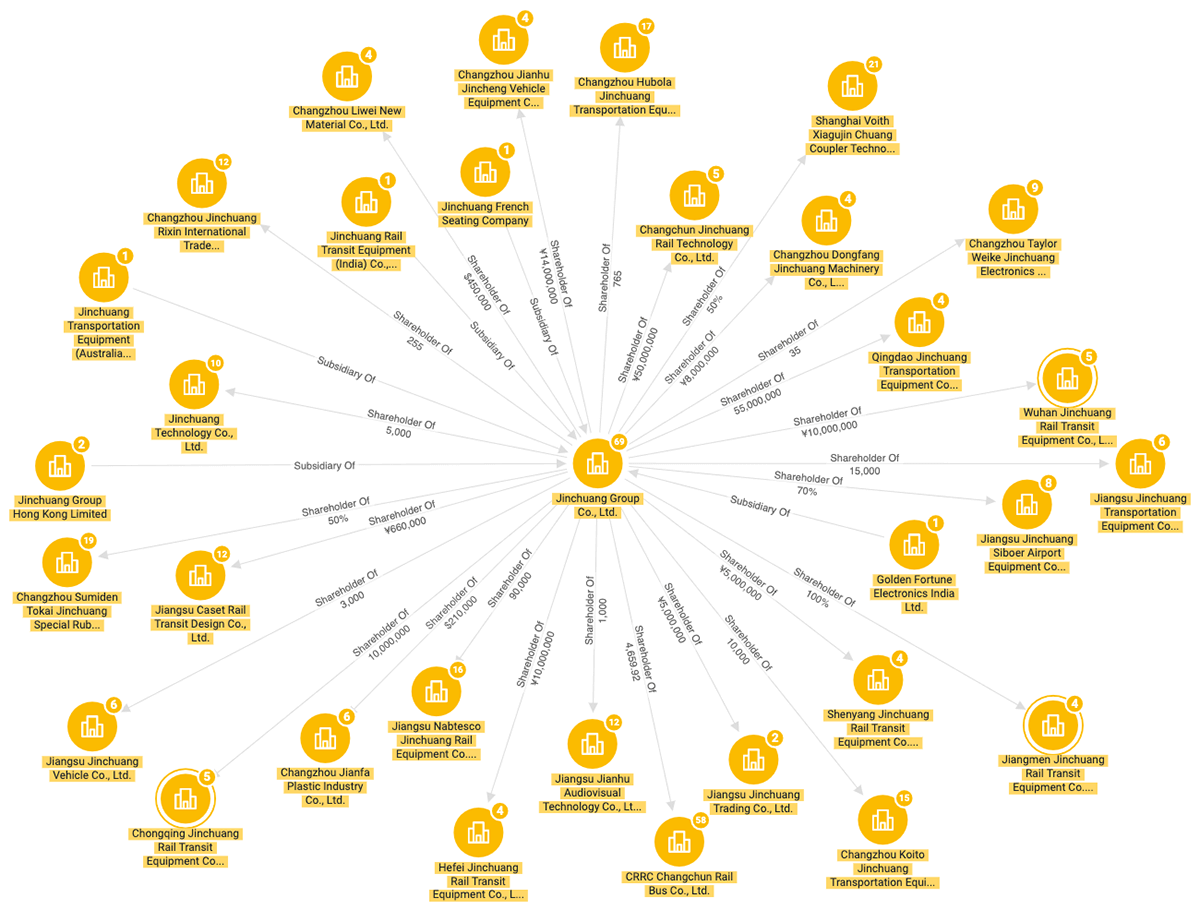The U.S. Department of Commerce’s Bureau of Industry and Security (BIS) recently added 11 Chinese companies implicated in human rights abuses committed against the Uyghur population and other Muslim minorities in China — specifically forced labor — to its Entity List. The additions raise the total number of Chinese entities implicated in these abuses to 45, since October of last year.
The latest additions to BIS’s Entity List include large corporations with global footprints featuring subsidiaries around the world. Additionally, some of the listed entities are licensed in China to engage in the import and export of goods, increasing the likelihood of overlap with foreign supply chains. This case highlights the importance of understanding a problematic entity’s larger network when evaluating supply chain risk.
U.S. Department of Commerce Designates Chinese Companies for Forced Labor
BIS’s Entity List includes companies and individuals that are believed to be involved, or at risk of being involved in activities contrary to the national security or foreign policy interests of the U.S. Entities designated by the bureau are subject to additional restrictions pertaining to trade — specifically in the form of additional licensing requirements for the export, reexport, and transfer (in-country) of specified items.
The latest 11 Chinese enterprises added to the list were found to be complicit with human rights violations and abuses tied to the implementation of China’s campaign of repression against Uyghurs, according to the official announcement.
We previously investigated one of the 11 companies, OFILM Tech Co., Ltd., a Chinese producer of camera and touchscreen components, and a supplier to several major global corporations including Apple. OFILM Tech was previously identified by the Australian Strategic Policy Institute (ASPI) as being involved in human rights abuses against the Uyghur minority. The company allegedly participated in the transfer of 700 Uyghurs from Xinjiang to one of its factories in Nanchang, Jiangxi province, according to the report.
Prior to its inclusion on the BIS Entity List, we mapped out OFILM Tech’s corporate network to highlight the potential risks it poses to a supply chain. In doing so, we identified 15 subsidiaries in China’s southeastern city of Nanchang — the location of the OFILM Tech factory believed to be engaging in forced labor.
Understanding Supply Chain Risk Within an Extended Corporate Network
International corporations should be wary of incorporating Xinjiang-based companies into their supply chains, due to the ongoing instances of forced labor involving the Uyghur minority, among other human rights abuses. There are over 700 entities that are licensed to export goods in Xinjiang, according to Sayari Graph. Some of which may be at risk of using forced labor. However, the latest additions to the Entity List make it clear that the issue is not limited to Xinjiang only.
One of the companies appearing on the BIS Entity List, KTK Group, also known as Jinchuang Group Co. Ltd., is an international corporation headquartered in China’s southeastern Jiangsu Province. The company’s network consists of several holding and investment companies, as well as subsidiaries involved in rail transportation equipment, machinery equipment, aviation and ships, real estate, and 5G communications, according to the company’s website. Trade analysis published by Panjiva confirms that the KTK Group supplied goods to large U.S. corporations earlier this year. Goods traded included autoparts and high voltage batteries.
Many of the companies that fall under KTK Group have their own subsidiaries making it very easy to lose track of the large corporate network. This, in turn, makes ensuring that a supply chain is compliant with U.S. trade regulations extremely challenging.
Identifying KTK Group Cross-Jurisdictional Ties
Using public records, we identified KTK Group subsidiaries in France, Hong Kong, India, Singapore and Australia, as well as an additional 26 in China. The records indicate that these subsidiaries all operate in similar industries as their parent company — primarily centered around the production of transportation and communications equipment. Given the overlap, there is an increased risk of companies within this large corporate network having forced labor in their supply chains.

Fig. 1: Sayari Graph snapshot of KTK Group (shown here as Jinchuang Group Co., Ltd.) corporate network. The number at the top of the icons indicates the number of second-tier subsidiaries and other connections.
There are great reputational and regulatory risks associated with having entities linked to forced labor in your supply chain. The risks increase further when those problematic entities are part of a much larger network.
As instances of Chinese entities using forced labor increase and more restrictions are put in place against them, multinational corporations reliant on Chinese manufacturing are at greater risk of being subjected to penalties for conducting business with these companies. Enhanced due diligence through the use of public records plays a vital role in mitigating such risks.



